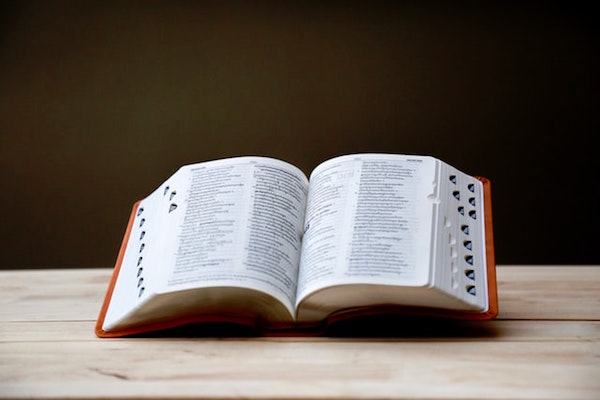On September 1, Dictionary.com announced they had updated over 15,000 terms on their website, and many of them are LGBTQ.
A Dictionary.com representative told Tagg that about ten new LGBTQ-related entries were added and over 20 LGBTQ+ related terms received new or revised entries. Additionally, over 50 entries were updated to say gay instead of homosexual.
In the announcement, Dictionary.com explained that “previously used terms, homosexual and homosexuality, originated as clinical language, and dictionaries have historically perceived such language as scientific and unbiased. But homosexual and homosexuality are now associated with pathology, mental illness, and criminality, and so imply that being gay—a normal way of being—is sick, diseased, or wrong.”
New and revised entries include ace, ambisextrous, asexual, biromantic, bisexual, deadname, gender-inclusive, gender diversity, pansexual, pride, and trans+. The entries for words with the -sexual suffix added “emotionally” to “romantically, emotionally, or sexually attracted to.”
The pride entry has new addition of Pride with a capital P defined as “recognition of LGBTQ identity, affirmation of equal rights, and celebration of visibility, dignity, and diversity in the LGBTQ community (formerly referred to as Gay Pride)” or “events or organizations that celebrate the LGBTQ community and its members (often used attributively).”
Dictionaries have sometimes struggled to keep up with the ever-evolving queer lexicon, with Merriam-Webster sometimes leading the way with decisions like making the personal pronoun they their 2019 Word of the Year. However, it took bisexual activist Robyn Ochs and LGBTQ media advocacy group GLAAD over a year of urging to get Merriam-Webster to update their bisexual definition from “of, relating to, or characterized by sexual or romantic attraction to both men and women” to “of, relating to, or characterized by sexual or romantic attraction to people of one’s same sex and of the opposite sex” (though “opposite sex” remains an inaccurate and problematic term).
Meanwhile, the new Dictionary.com definition of bisexual is “noting or relating to a person who is romantically, emotionally, or sexually attracted to both men and women, or to people of various gender identities.”
In their announcement, Dictionary.com says they followed GLAAD’s guidelines, perhaps referring to GLAAD’s Media Reference Guide which includes many definitions. Barbara Simon, Head of News and Campaigns at GLAAD, told Tagg that “while we didn’t work directly with Dictionary.com, their updates reflect our messaging in our media reference guide and we’re grateful for them.”
Simon continued: “Words, representation and context matter, especially for vulnerable people who haven’t always had the support of mainstream media. Merriam-Webster and Dictionary.com’s updates add long-fought-for recognition to LGBTQ people in how we refer to ourselves and how we wish to be seen, the first step in being accepted and valued.”


